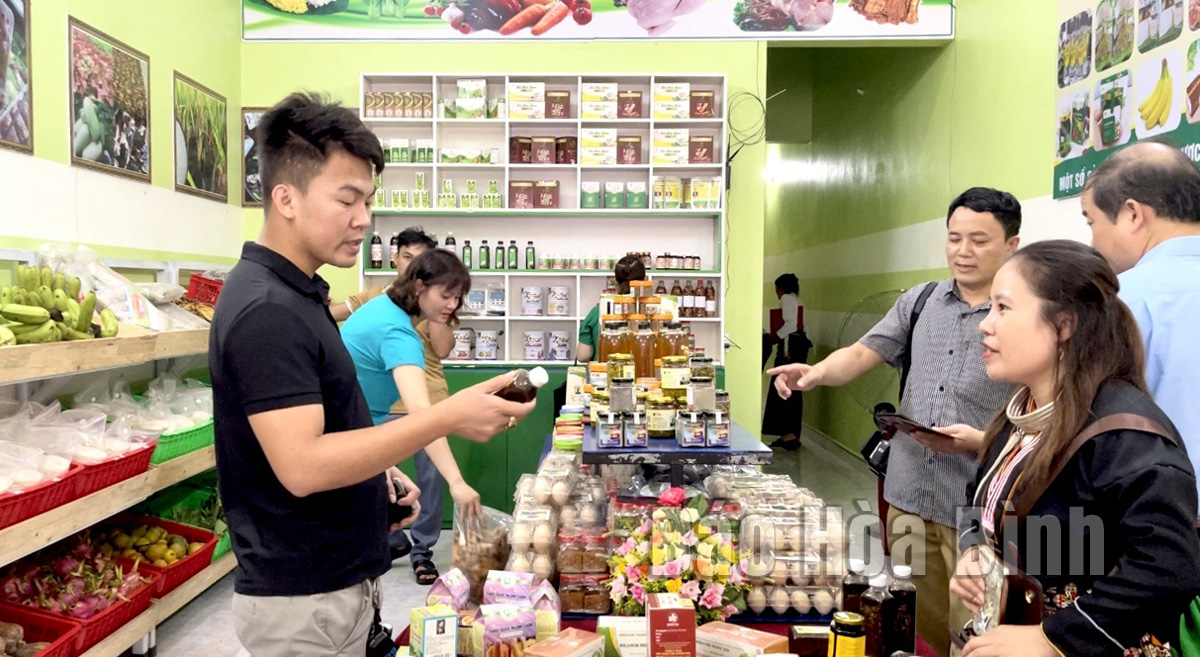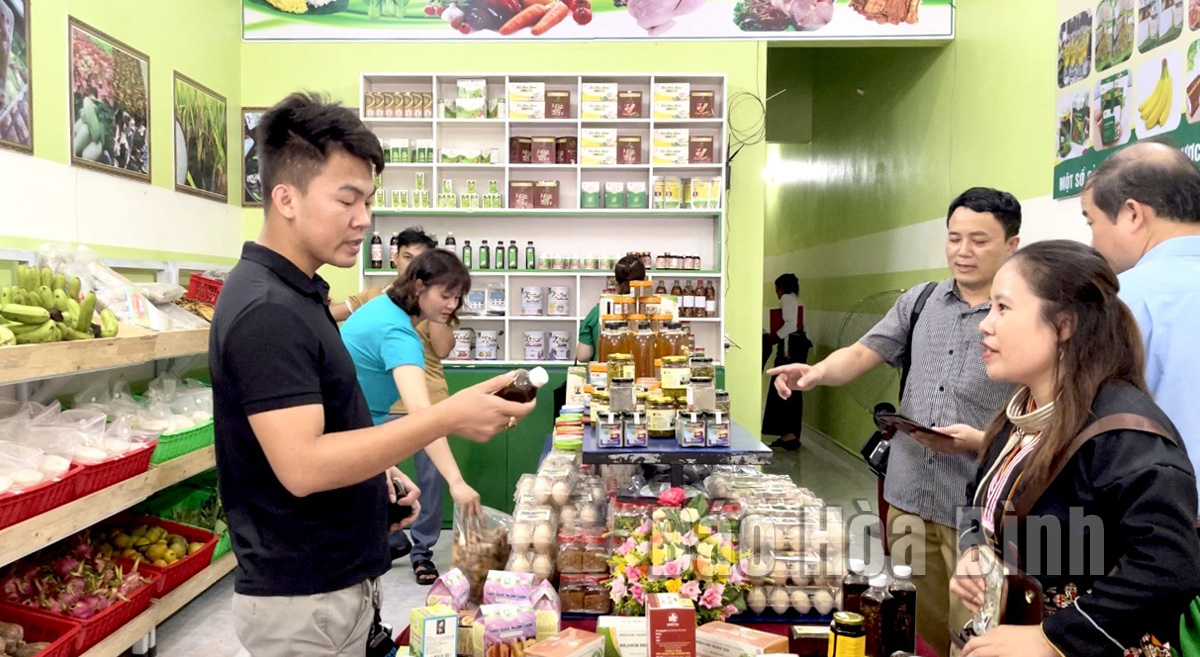
(HBO) – The Farmers' Association of Da Bac district has been promoting communications and calling on its members to develop models of clean agricultural production, towards a clean, safe, and sustainable agriculture.
Tam Cuong safe agricultural product store in Da Bac
township, Da Bac district.
The association and the provincial Farmers Support Centre coordinated to open
Tam Cuong safe agricultural product store in Da Bac town in early August. It’s the first of its kind in the district and the 10th in the
province.
Store owner Ha Thi Tam said that with the desire for consumers
to access safe agricultural products, she opened the store with support from
local authorities. Currently, the store sells 21 products, of which 15 are One
Commune – One Product (OCOP) ones of Hoa Binh and other provinces.
The associations at all levels in the province have offered
farmers training courses and transfer of scientific and technical advances in
production and animal husbandry. Farmers were also instructed to connect the
market, make production and business plans, and properly use fertilisers. Since
2018, over 24,300 farmers have attended a total of 305 training courses. Up to now, the district Farmers Support Fund has topped 3.18
billion VND ( 132,400 USD). In the last five years, 14 economic models of 146
farmer households got loans from the fund.
Quach Thi Khieu, Chairwoman of the People's Committee of Da Bac district, said
that farmers’ associations offer support in capital, seeds, science, and
technology, and coordinate with sectors to help farmers build brands and sell
products. The associations is cooperating with the district’s Post and
Viettel Post to help farmers join e-commerce trading floors.
As a result, two of the district’s agricultural products are
sold on Postmart.vn. By the end of 2022, the whole district had established 93
cooperative groups, 43 cooperatives providing agricultural materials services,
and processing agricultural and forestry products. Out of the six OCOP products
of Hoa Binh province, three are from Da Bac district.
According to data from the Hoa Binh Provincial Party Committee, the industrial production index for the first six months of 2025 is estimated to have increased by 20% compared to the same period last year. This marks the highest year-on-year growth rate for this period since 2020.
In the first six months of 2025, Hoa Binh province’s export turnover was estimated at 1.145 billion USD, marking an 18.11% increase compared to the same period in 2024. Import turnover was estimated at $ 804 million, a 17.15% increase, which helped the province maintain a positive trade balance.
The lives of the ethnic minority farmers in Tan Lac district have gradually improved thanks to the new directions in agricultural production. This is a testament to the collective strength fostered through the professional associations and groups implemented by various levels of the district’s Farmers’ Union.
With the motto the "product quality comes first,” after nearly one year of establishment and operation, Muong village’s Clean Food Agricultural and Commercial Cooperative, located in Cau Hamlet, Hung Son Commune (Kim Boi district), has launched reputable, high-quality agricultural products to the market that are well-received by consumers. The products such as Muong village’s pork sausage, salt-cured chicken, and salt-cured pork hocks have gradually carved out a place in the market and they are on the path to obtaining the OCOP certification.
In the past, the phrase "bumper harvest, rock-bottom prices" was a familiar refrain for Vietnamese farmers engaged in fragmented, small-scale agriculture. But today, a new spirit is emerging across rural areas of Hoa Binh province - one of collaboration, organisation, and collective economic models that provide a stable foundation for production.
Maintaining growing area codes and packing facility codes in accordance with regulations is a mandatory requirement for agricultural products to be eligible for export. Recently, the Department of Agriculture and Environment of Hoa Binh province has intensified technical supervision of designated farming areas and packing facilities to safeguard the "green passport" that enables its products to access international markets.



